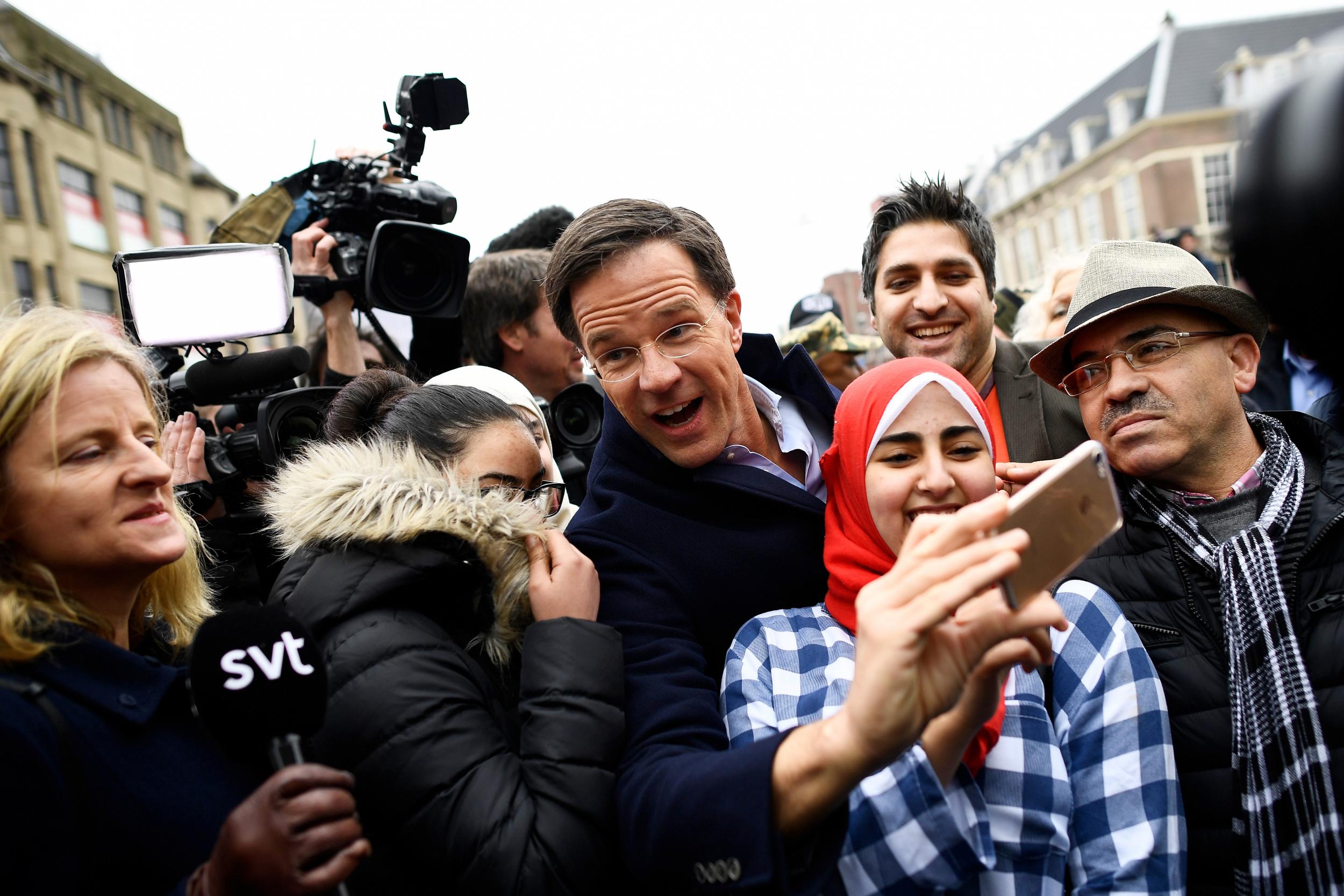Dutch election: One result is already guaranteed – weeks more of uncertainty
Experts predict a coalition-building process that could potentially take months

Your support helps us to tell the story
From reproductive rights to climate change to Big Tech, The Independent is on the ground when the story is developing. Whether it's investigating the financials of Elon Musk's pro-Trump PAC or producing our latest documentary, 'The A Word', which shines a light on the American women fighting for reproductive rights, we know how important it is to parse out the facts from the messaging.
At such a critical moment in US history, we need reporters on the ground. Your donation allows us to keep sending journalists to speak to both sides of the story.
The Independent is trusted by Americans across the entire political spectrum. And unlike many other quality news outlets, we choose not to lock Americans out of our reporting and analysis with paywalls. We believe quality journalism should be available to everyone, paid for by those who can afford it.
Your support makes all the difference.While Mark Rutte, the incumbent Dutch Prime Minister, and his VVD have claimed top billing in the parliamentary elections - seeing off a challenge from the far-right Freedom Party there is one thing you can be sure of – a lengthy round of negotiations.
The fragmented nature of the Dutch politics scene has been well-documented. With 28 parties competing in the election and places in lower house of the Dutch parliament decided proportionally from the national vote – with 0.67 per cent need to secure a seat – there was little prospect of one party having secured a clear enough majority to rule on their own.
Around 15 parties were expect to pass the threshold to get into the 150-seat parliament, with not much to choose between a number of parties in the polls. According to the results, with 75 per cent of the votes counted, the VVD were expected to win the most seats at 32. Geert Wilders and his far-right Freedom Party (PVV) were settled in second place in the polls in the final week before the election, but were expected to take 19 seats or so with the Christian Democrats (CDA) and the progressive liberals of Democrats 66 (D66) doing the same. Therein lies the problem for Wilders – almost all of the leading parties, including those mentioned above and the liberal Green Left and the Socialist Party, have ruled out working with him or his party to forma coalition.
Experts predict a coalition-building process that could potentially take months, with at least four parties seemingly required to pull together a 76-seat majority. And while informal discussions can begin as soon as the election is over, the process will not formally begin until 21 March when the Electoral Commission posts the official final results online.
Mr Rutte's last government – after his party finished top in elections in 2012 – was a two-party coalition with the Labour Party after the VVD took 40 seats. However, in a sign that the landscape has become even more fragmented, the Labour Party looks likely to tak only nine seats this time around – a historic low.
Once negotiations have finished, there is expected to be the first such multi-party alliance since three in the 1970s. Two of those fell apart within 12 months.
Wilders has form when it comes to coalitions, dating back to elections in 2010 that produced a minority government led by Mr Rutte and including the CDA. Wilders and his party were not part of the coalition, but supported it, until he walked away over the implementation of austerity measures and caused the government’s collapse.
With a high voter turnout in the vote pressure will be high to find a workable solution. Mr Rutte will have the lead in forming a coalition - with the CDA and D66 the obvious first ports of call. But, that would leave them short of the 76 majority. Wilders has spoken of his willingness to be involved in negotiations for a coalition, something other party leaders will do everything to avoid. With Wilders populist party having seemingly gained four seats compared to 2012, he is going to try and be positive. But Wilders has also said he is happy to be in opposition – something that will befit the outsider status he revels in. Either way, there will likely be weeks of uncertainty.
Join our commenting forum
Join thought-provoking conversations, follow other Independent readers and see their replies
Comments